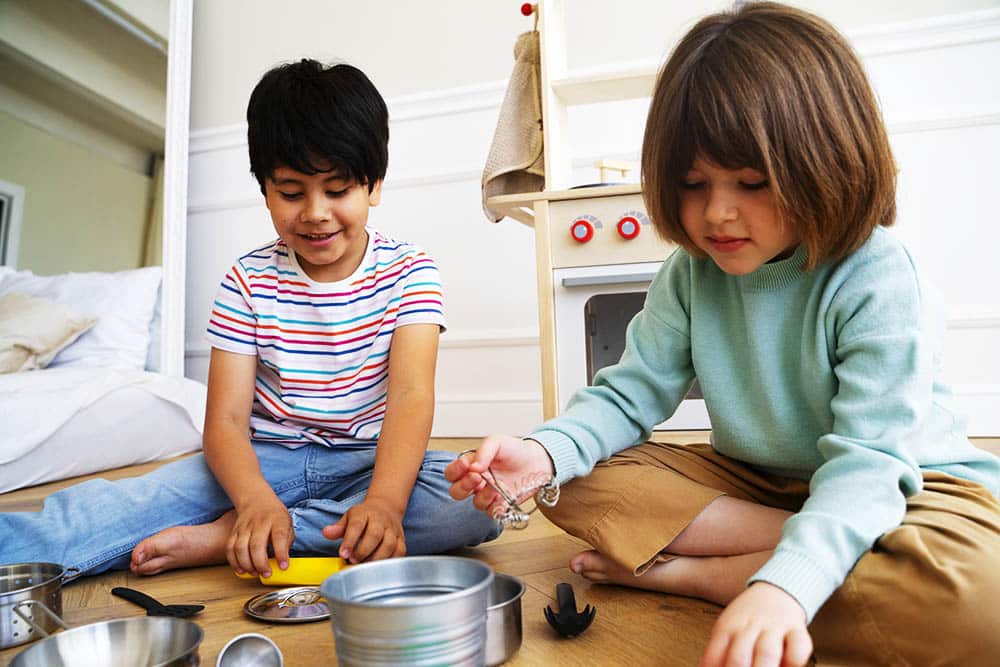Kindergarten education is the foundation of a child’s academic journey. It is where children learn basic skills, develop social and emotional abilities, and cultivate a love for learning. Early childhood education is essential in preparing young learners for their future academic and personal success. This article aims to highlight the importance of kindergarten education and how it impacts a child’s future success.
Development of Skills
Kindergarten education lays the foundation for the development of vital skills that will be essential for academic success further down the line. During this stage, children are introduced to the basics of reading, writing, and arithmetic. These skills are foundational and will be built upon as a child advances through their academic journey.
In addition to academic skills, young learners also develop communication, reasoning, and critical thinking skills. These skills are crucial in helping children understand complex concepts and make connections in the classroom and beyond. Furthermore, kindergarten education also instills the value of teamwork, respect, and collaboration in young learners, which helps them in socializing better with other children.
Preparing for Future Academic Success
Kindergarten education prepares young learners for their future academic success by providing them with a strong foundation in basic academic skills and instilling in them a love for learning. A successful kindergarten education sets a solid base for academic learning, making future academic pursuits much more manageable.
Moreover, kindergarten education prepares children by nurturing their curiosity, imagination, and creativity. Exploration and experimentation are a significant part of kindergarten education, which helps to foster a lifelong love for learning. These skills are also integral in cultivating innovation, creativity and problem-solving for children, which is an essential skill for future jobs and even entrepreneurship.
Social Development and Emotional Intelligence
In addition to academic development, kindergarten education is a crucial stage for social development and emotional intelligence. This stage provides an opportunity where children learn to interact with others in a group setting, enhancing their interpersonal and social skills at an early age. Furthermore, kindergarten education enables young learners to develop empathy, which helps them to understand and relate to the feelings and experiences of others.
Kindergarten education also provides a space for children to learn how to manage their emotions, express themselves, and cope with everyday challenges. These early stages of social development and emotional intelligence help to set a foundation for healthy relationships and social integration in the future.
Quality vs. Quantity
Quality kindergarten education is essential. A good kindergarten education program should have knowledgeable and experienced teachers, a well-structured curriculum, ample resources, and a hands-on approach to learning. Parents should make an effort to seek out quality kindergarten programs that cater to their children’s individual needs and interests.
In recent years, there has been an increasing trend of parents sending their children to multiple kindergarten programs, assuming that more education will lead to more success. However, it is essential to note that more isn’t always better. Multiple programs may lead to overloading of information, which may not necessarily lead to better academic or social development. Instead, parents should opt for a few quality programs that provide a safe and supportive learning environment catering to the child’s individual needs.
How Parents Can Help
Parents play a critical role in their child’s education and should make an effort to be involved in their child’s kindergarten education. Here are a few ways that parents can help their child succeed:
1. Read with your child every day: Make reading a fun and interactive experience, explore different books and engage in conversations beyond the text.
2. Encourage exploration: Kindergarten education is all about discovery and exploration. Encourage children to ask questions, try new things, and experiment in a safe and supportive learning environment.
3. Reinforce good behavior: Positive reinforcement helps to build children’s self-esteem, confidence, and motivation. Celebrate good behavior and effort regularly and show your child that you believe in them.
4. Communicate with your child’s teacher: Engage with your child’s teacher regularly to understand your child’s progress and how you can support them at home.
Conclusion
Kindergarten education is a crucial period in a child’s academic and personal development. It sets the foundation for future academic success, social and emotional intelligence, and critical life skills such as communication, reasoning, and critical thinking. While parents play a significant role in their child’s education, quality kindergarten programs, experienced teachers, and a well-structured curriculum are essential in ensuring a child’s success. By investing in your child’s kindergarten education, parents help their child develop a lifelong love for learning and tap into their full potential.
- Why Breastfeeding is Essential for Your Baby’s Health: The Benefits You Can’t Ignore - mayo 28, 2023
- Unleash the Power of Play: Why Children’s Games are Essential for Development - mayo 28, 2023
- Why Investing in High-Quality Children’s Toys is the Best Decision for Your Child’s Development and Happiness - mayo 28, 2023


